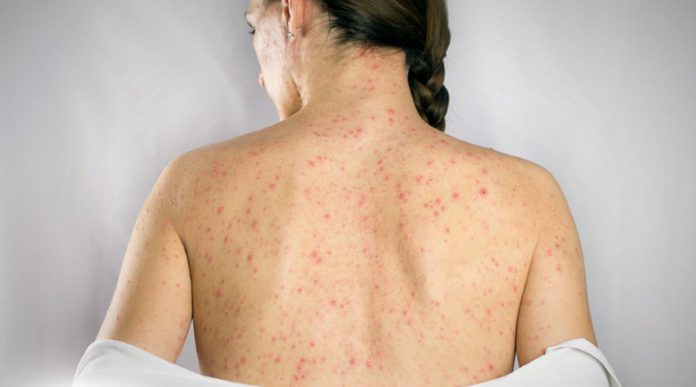If there was ever a disease that could be accused of kicking a man when he’s down, it’s shingles!
The strip of itchy and painful blisters, often accompanied by a fever and fatigue, cause significant pain and discomfort. Shingles will most often appear when you are at your lowest ebb; either suffering with intense and ongoing stress, undergoing treatments for cancer or suffering from a compromised immune system.
What exactly is shingles, and how can you deal with this illness?
What Causes Shingles?
Shingles is caused by the varicella-zoster virus, the same culprit responsible for chickenpox. After our recovery from chickenpox, this virus lays dormant in the area around our spinal cord, and given the right environment, it may flare up in the form of shingles later in life.
Symptoms of Shingles
How do I know if I have shingles? Most people initially feel pain or sensitivity in the area around their torso which will erupt into a rash after a few days. This rash, which may also be present on the face or neck, develops into painful fluid-filled and itchy blisters. Some people suffer from a fever, light-sensitivity and headaches.
Interestingly, some may feel the pain from the infected nerves but not see the external symptoms on the skin. Either way, a visit to your doctor is a must.
Risk Factors
As you age, your chance of developing shingles increases, with people over 50 considered a higher risk group and those over 80 at very high risk. Individuals suffering from HIV/AIDS are also at risk due to a weakened immune system – as are those receiving treatment for cancer or who use steroids. Acute stress has also been shown to activate this virus.
While shingles is not considered a life-threatening disease, complications can develop. Infections of the skin or delicate surrounding areas (such as the eye) can occur if the blisters are not treated with proper care, and because the virus attacks the nerves around it, there have also been reports of facial paralysis, hearing problems or inflammation of the brain.
It’s good to bear in mind that, just like chickenpox, your open sores are highly contagious, and you can easily infect others.
Treatment for Shingles
Chickenpox vaccinations as a child are always recommended as a preventative measure, although it’s not an absolute guarantee that you won’t develop shingles at a later stage.
In addition, there are some approved shingles vaccinations available which offer limited protection and few side effects.
If you prefer to treat your shingles with natural products, then you have a few great options available.
Essential oils such as chamomile, eucalyptus and tea tree oil are well-known for their anti-microbial and anti-inflammatory properties and can offer some relief from itching and burning skin. Witch hazel is another of nature’s nurses and can be found in various forms such as easy-to-apply creams.
As ever, a healthy diet is the cornerstone of your overall wellness. A diet rich in a variety of fruits and vegetables provides essential vitamins and nutrients which work to reduce inflammation, boost our immune system and help us to cope with the stresses of modern life. If you are battling to get your ‘5 a day’ then supplements are a solution – especially for older ones for whom it is imperative to maintain a strong system.
Your doctor will most likely recommend many of the above, but they may miss an important facet of your treatment. It’s easy to say “reduce stress” but what does that actually look like on a day to day basis?
With stress being a major trigger for shingles, treatment for this issue needs to be dealt with just as you would other tangible physical ailments. If your health depends on you being happier, more rested and less tense, then it’s well worth considering a workable routine of exercise, meditation or mindfulness, and sufficient sleep.















